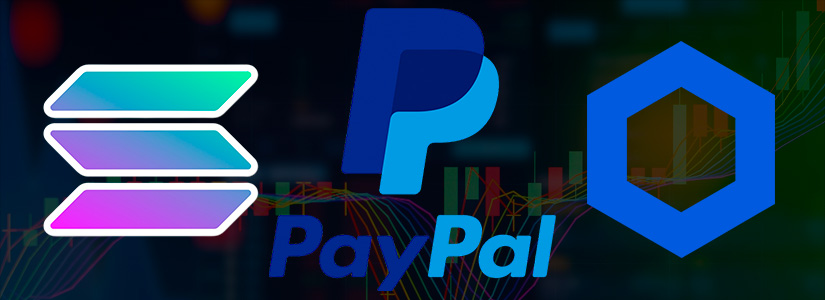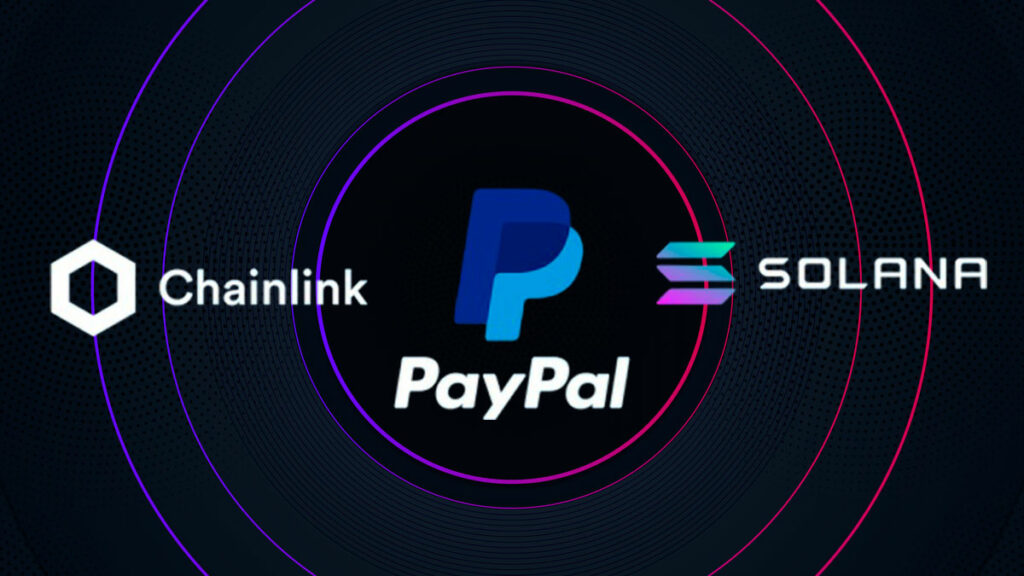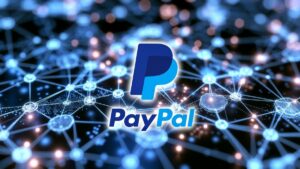TL;DR
- Expanded Crypto Offerings: PayPal now allows U.S. users to buy, sell, and hold Solana (SOL) and Chainlink (LINK) alongside its existing crypto options.
- Enhanced Blockchain Utility: SOL brings fast, cost-efficient transactions, while LINK’s decentralized oracle network enables secure smart contract interactions.
- Mainstream Adoption Push: This move deepens PayPal’s integration of blockchain tech into traditional finance, although external transfers for SOL and LINK remain unavailable.
PayPal has taken another bold step in its crypto journey, officially adding Solana (SOL) and Chainlink (LINK) to its list of supported digital assets for U.S. users. This expansion marks a significant milestone in PayPal’s commitment to integrating blockchain technology into mainstream finance, offering users more flexibility in managing their crypto portfolios.
Previously, the company’s crypto offerings were limited to Bitcoin (BTC), Ethereum (ETH), Litecoin (LTC), Bitcoin Cash (BCH), and PYUSD. With the addition of SOL and LINK, users can now buy, sell, and hold these assets directly within their PayPal accounts, further bridging the gap between traditional finance and decentralized ecosystems.
Why SOL and LINK?
Solana has gained traction as one of the fastest and most cost-efficient blockchains, capable of handling thousands of transactions per second with minimal fees. Its growing ecosystem, including DeFi applications, NFTs, and tokenized assets, makes it a valuable addition to PayPal’s crypto lineup.
Chainlink, on the other hand, is a decentralized oracle network that enables smart contracts to interact with real-world data. Its integration into the payment app platform signals a broader push toward blockchain-based financial services, potentially enhancing PayPal’s ability to offer secure and verifiable transactions.
The Bigger Picture

The company’s move comes at a time when major financial institutions are increasingly embracing digital assets. The company’s decision to support SOL and LINK aligns with its broader strategy of enhancing crypto utility for businesses and consumers alike.
However, while users can now trade these assets within PayPal, external transfers for SOL and LINK are not yet confirmed. This means users may not be able to send these tokens to external wallets, a limitation that the company may address in future updates.
What’s Next?
With over 36 million merchant accounts, PayPal’s expansion into crypto is reshaping the digital payments landscape. As regulatory clarity improves and adoption grows, the company’s role in the crypto space could evolve further, potentially integrating staking, lending, and cross-border payments powered by blockchain technology.
For now, U.S. users can enjoy the convenience of managing SOL and LINK directly within their PayPal accounts, signaling a new era of mainstream crypto adoption. The question remains—will the company continue expanding its crypto offerings, or is this just the beginning of a larger transformation?










